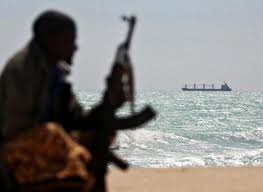
September 2012
Despite a significant drop in pirate attacks in the first half of 2012, maritime authorities are warning shipping companies not to get too comfortable. International navies have had success patrolling the Indian Ocean and Gulf of Aden, bringing a 54 per cent decrease in attacks. However, they won’t be able to stay in that body of water forever, nor will they be able to chase piracy around the globe.
For instance, the Abu Dhabi Star, an oil tanker, was hijacked just last week and the crew of 23 Indian sailors were taken captive. Fortunately, the pirates abandoned the vessel when a Nigerian naval ship, supported by a helicopter, began to overtake the slow moving tanker. Although the crew is safe and no shots were fired, it is yet unknown whether or not the oil was stolen. While hostage situations are far from uncommon in West Africa, most pirates resort to more straightforward “smash and grab” theft of oil, quickly selling it to pre-arranged black-market buyers.
This incident highlights the basis for warnings from international navies that while Somali piracy has dropped, piracy in other areas such as West Africa, has actually increased. So far in 2012, there has been a 28 per cent increase in piracy in or around the Gulf of Guinea.
Nigeria has seen the most activity, but other nations, such as Togo, have also experienced the increase in piracy. Guns have been used in the majority of attacks, and the pirates aren’t afraid to get violent. One crew member has already been killed by pirates, and another has died of his wounds received during an attack.
The international coalition includes vessels participating in Operation Atalanta, a European Union Naval Force (EUNAVFOR) operation to prevent and combat the effects of piracy in the waters east of Africa. Also operating in the area if Combined Task Force 151, another coalition made up of ships from Australia, Pakistan, South Korea, Turkey, the United Kingdom and the United States. Finally, NATO’s Operation Ocean Shield includes members of the treaty organization and operates in conjunction with the other two operations.
However, these operations can not continue indefinitely, nor can they spread to the other side of the continent and maintain their effectiveness. The other main reason for the success of the counter-piracy effort in the east is the shipping companies’ willingness to employ defensive measures themselves.
Merchant vessels have started employing armed guards, as well as barbed wire and other physical deterrents to make piracy more difficult. These measures have been very successful, and will be required indefinitely until a permanent solution to the problem is found.
Many military officials associated with the joint-task forces combatting piracy are aware of the positive effect these measures have had in the battle against piracy. They are constantly warning merchants not to drop their guard, and to always employ counter-piracy measures aboard ships that are travelling through dangerous waters.